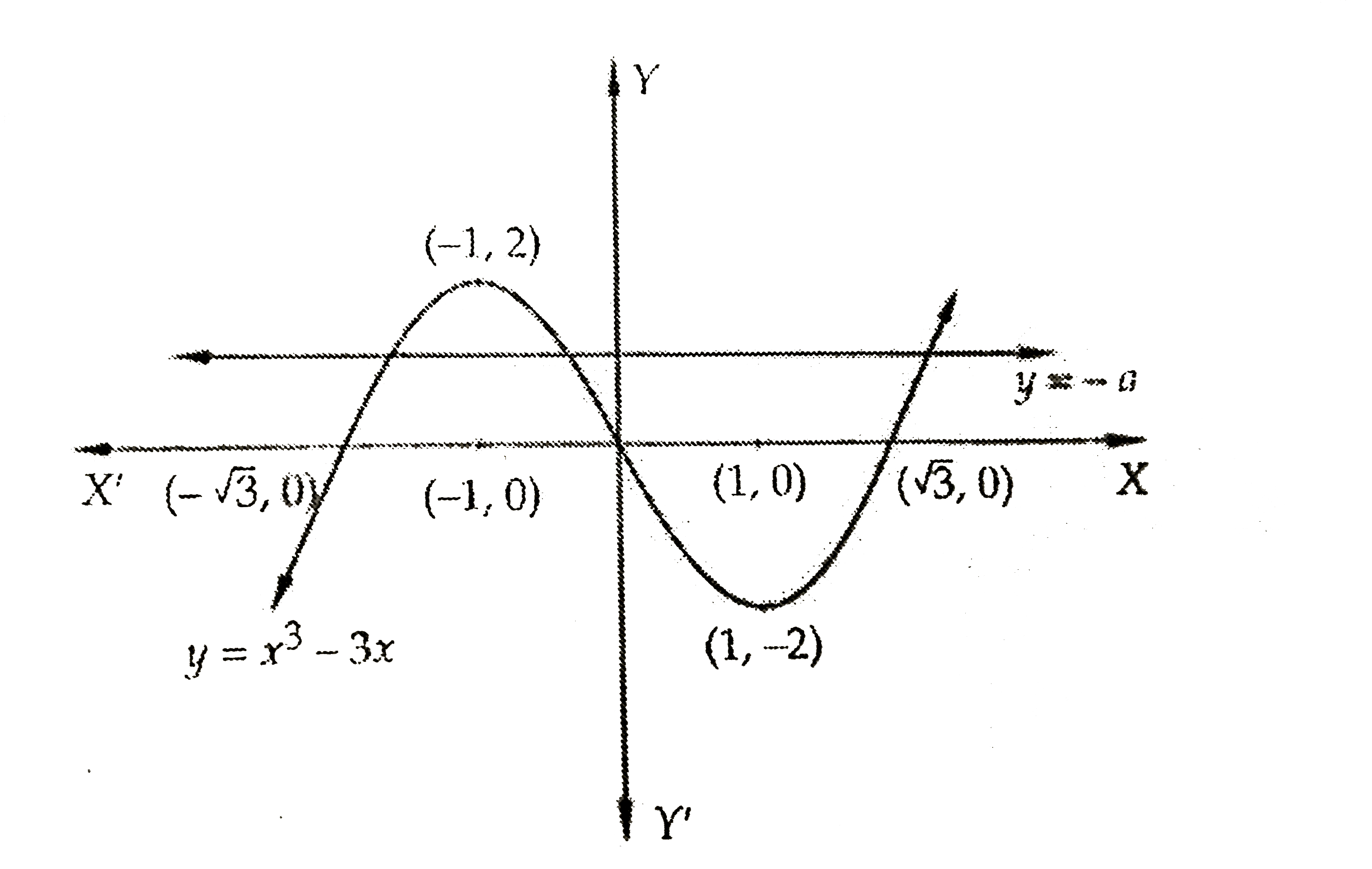Number of integers in the range of 'c' so that the equation x3−3x+c=0 has all its roots real and distinct is
2
3
4
5
The correct Answer is:B
The given equation is x3−3x+a=0 or x3−3x+a=0.We observe that the number of real roots of the given equation is same as the number of points of intersection the curves y=x3−3x and y=-a.
These two curves intersect at three distinct points if −2<a<2.So, the integral values of a in this range are -1,0 and 1.

Topper's Solved these Questions
- MISCELLANEOUS EQUATIONS AND INEQUATIONS BOOK - OBJECTIVE RD SHARMACHAPTER - MISCELLANEOUS EQUATIONS AND INEQUATIONS EXERCISE - Exercise
30 Videos
- MISCELLANEOUS EQUATIONS AND INEQUATIONS BOOK - OBJECTIVE RD SHARMACHAPTER - MISCELLANEOUS EQUATIONS AND INEQUATIONS EXERCISE - Chapter Test
30 Videos
- MEASURES OF CENTRAL TENDENCYBOOK - OBJECTIVE RD SHARMACHAPTER - MEASURES OF CENTRAL TENDENCYEXERCISE - Chapter Test
21 Videos
- PLANE AND STRAIGHT LINE IN SPACE BOOK - OBJECTIVE RD SHARMACHAPTER - PLANE AND STRAIGHT LINE IN SPACE EXERCISE - Chapter Test
31 Videos
Similar Questions
Knowledge Check
If the equation x3−3ax2+3bx−c=0 has positive and distinct roots, then
Aa2>bBab>c2Ca3>c2Da3>b2>cIf the equation x3−3x+a=0 has distinct roots between 0 and 1, then the value of a is
A(1,2)B(0,2)C(2,3)Dnone
Find the sum of all the values of a so that the equation (x2+2ax+2a+3)(x2+2ax+4a+5)=0 has only 3 real distinct roots
View SolutionNumber of distinct real values of x satisfying the equation x3−5x2+7x−3=0 is
View SolutionLet f(x)=x2−9−|x−a| . If the number of integers in the range of a so that f(x)=0 has 4 distinct real root is K ,then [K5]=, ([.] denotes G.I.F)
View SolutionThe number of values of k for which the equation x3−3x+k=0 has two distinct roots lying in the interval (0,1) is three (b) two (c) infinitely many (d) zero
View SolutionIf a,b,c are distinct positive numbers, then the nature of roots of the equation 1/(x−a)+1/(x−b)+1/(x−c)=1/x is a. all real and is distinct b. all real and at least two are distinct c. at least two real d. all non-real
View SolutionFind the value of k if x3−3x+k=0 has three real distinct roots.
View Solution